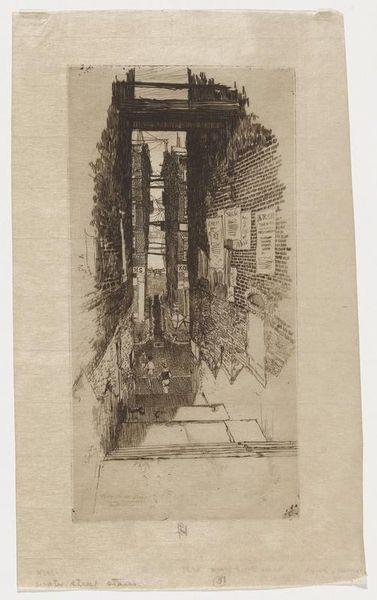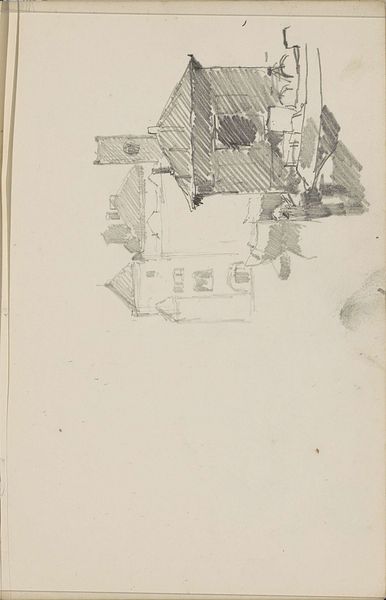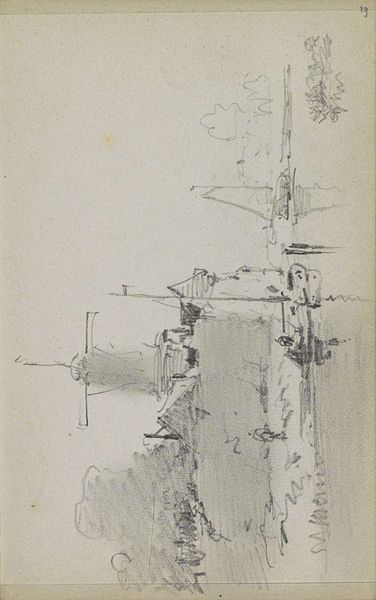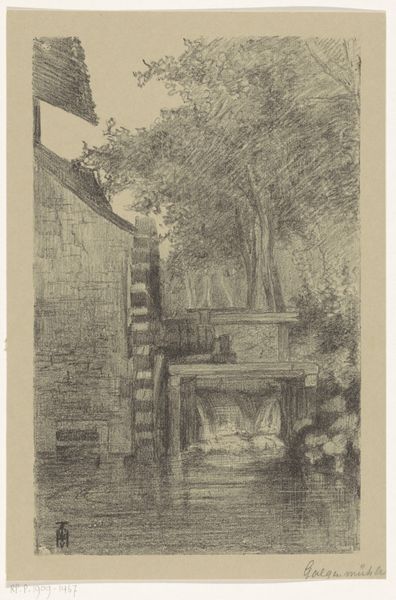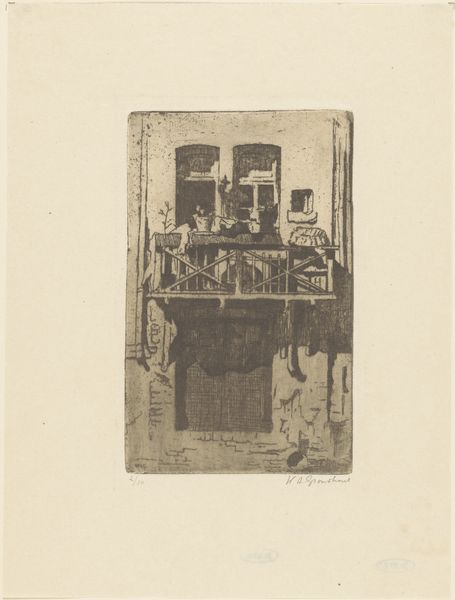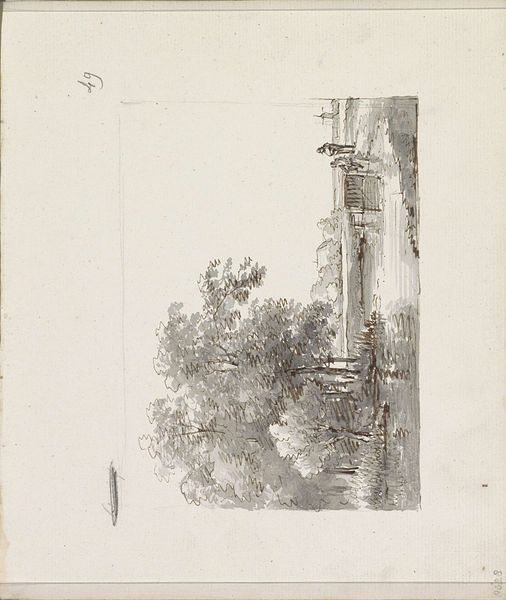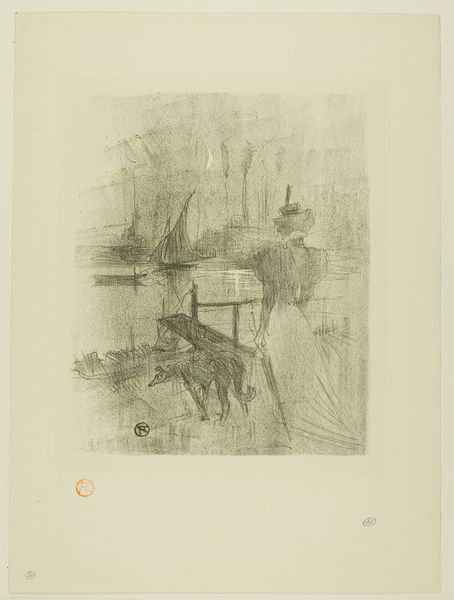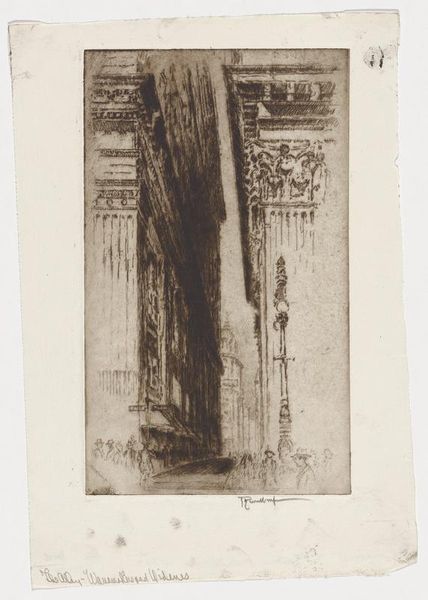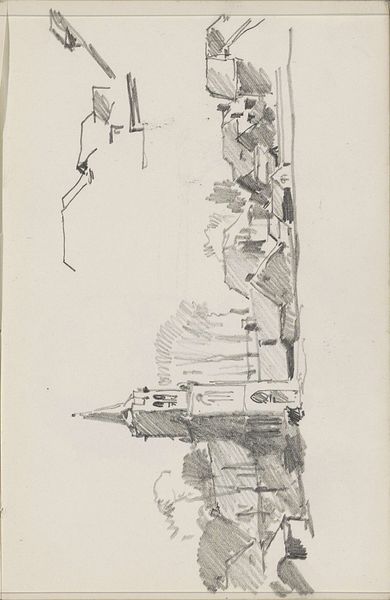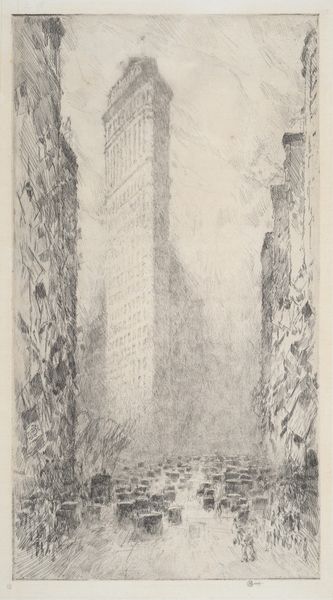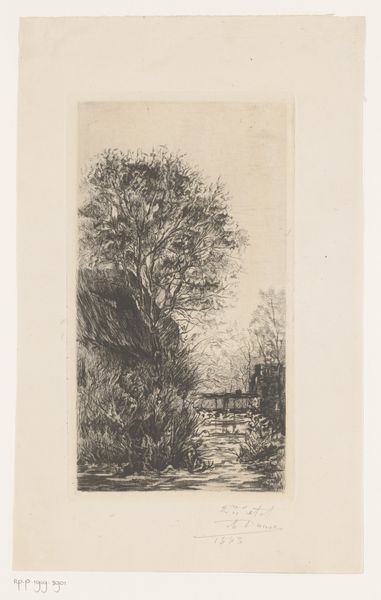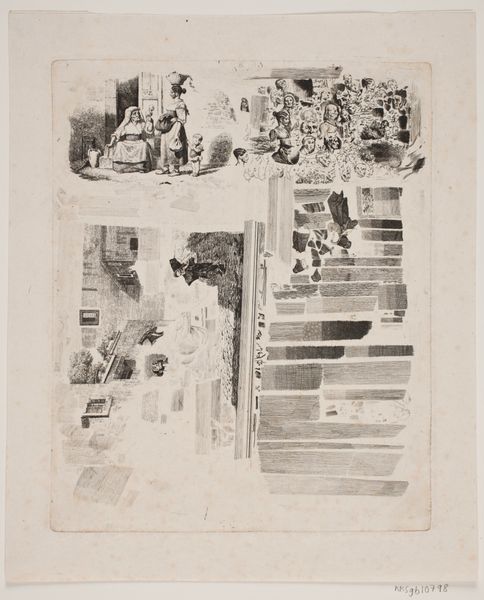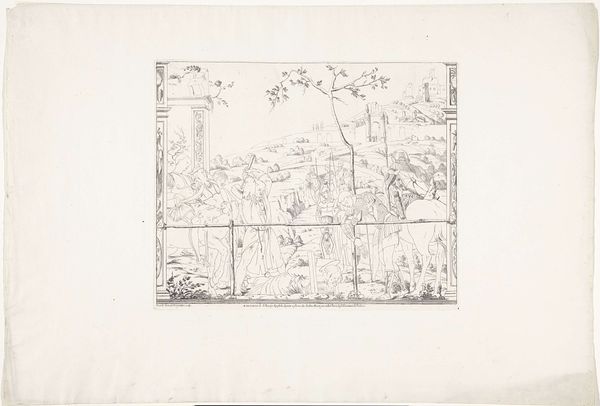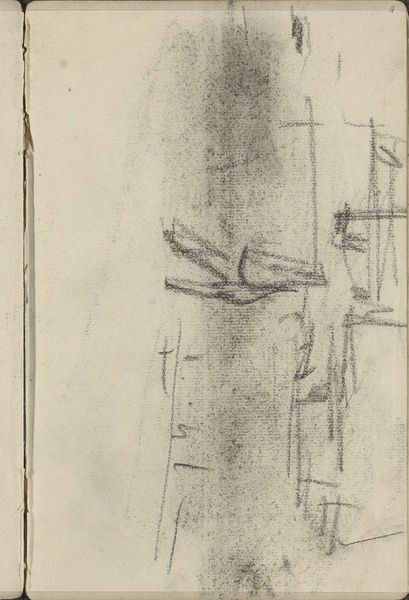
print, etching
# print
#
etching
#
landscape
#
street-photography
#
united-states
#
sketchbook drawing
#
cityscape
#
realism
Dimensions: 11 15/16 x 5 15/16 in. (30.32 x 15.08 cm) (plate)17 3/4 x 12 5/16 in. (45.09 x 31.27 cm) (sheet)
Copyright: No Copyright - United States
Editor: This is Joseph Pennell’s etching "Water Street Stairs" from 1881. I’m struck by the grittiness of the scene. It feels very immediate, like a captured moment. What draws your attention when you look at this work? Curator: As a materialist, I immediately consider the process. The etching technique allows for incredibly fine detail, mimicking the texture of brick, the worn surfaces of the steps. Notice how the density of lines suggests shadow and depth in this constricted urban space. What statements are being made about the economics, the industry of this location, this time? Editor: So you're focusing on how the *making* of the image reflects the *making* of the city itself? The labor and industry, the actual production... Curator: Precisely. Consider the etcher's labour to render the textures of the walls. The architecture itself speaks of material accumulation – brick upon brick, sign upon sign. Who lived here? Who traded and built their living out of it? Look at the posters adorning the brick walls. They indicate a particular community, its concerns, even its literacy rates. What were they trying to consume or avoid consuming? What choices did these residents have? Editor: The figures walking in the distance look very small. The walls tower over them, like they are insignificant. I guess if they're laborers they would be… Curator: They are dwarfed by the structures they built and by those same economic forces which determined their existence. Even Pennell, in choosing this subject, is making a statement about what is deemed worthy of artistic attention. This challenges high and low art! What do *you* make of that choice? Editor: I hadn't thought about the implications of depicting such an everyday scene. Seeing the etching process itself as a reflection of labour and social forces…that’s definitely a new perspective for me. Thanks! Curator: Indeed, art history expands once materiality, methods, and context take their place.
Comments
No comments
Be the first to comment and join the conversation on the ultimate creative platform.
